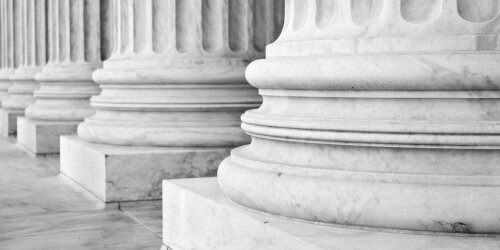Best Communications & Media Law Lawyers in New York City
Share your needs with us, get contacted by law firms.
Free. Takes 2 min.
List of the best lawyers in New York City, United States
About Communications & Media Law in New York City, United States
Communications and Media Law covers rules that govern broadcasting, publishing, online platforms, advertising, privacy, and intellectual property. In New York City, a dense mix of federal regulation, state statutes, and local rules shapes how media businesses operate and how individuals protect their rights. A NYC media attorney helps clients negotiate licensing, defend against defamation or privacy claims, and ensure compliance with platform and advertising rules.
New York City hosts a vibrant media ecosystem, including newspapers, television, radio, streaming services, and digital platforms. The local landscape often requires coordinating federal rules from agencies like the Federal Communications Commission with state privacy and IP laws. Practitioners in this field must understand cross-cutting issues such as licensing, content moderation, data security, and journalist safety protections.
Key takeaway: NYC clients benefit from counsel who can translate complex, multi-jurisdictional requirements into practical strategies for production, distribution, and risk management.
Source: Federal Communications Commission (fcc.gov) provides the framework for broadcasting, licensing, and spectrum management that affects NYC media operations.
Additional context: U.S. Copyright Office explains how copyright, fair use and licensing interact with media production and distribution-crucial for NYC creators and outlets. copyright.gov
Source: U.S. Copyright Office explains fair use as a defense assessed via four factors, guiding NYC creators and platforms in remixing, commentary and educational use.
Why You May Need a Lawyer
New York City media matters often involve sensitive, fast-moving issues. A qualified solicitor or attorney can help with risk assessment, negotiations, and dispute resolution tailored to NYC’s regulatory environment. Below are concrete scenarios where legal counsel is essential.
- A Manhattan online newspaper publishes a local political rumor and faces a defamation lawsuit. An attorney can assess publication risks, draft retractions, and navigate discovery while protecting press freedom.
- A Brooklyn music startup needs licenses for widely used songs in a streaming app. A lawyer can negotiate licenses, advise on fair use, and structure revenue-sharing agreements with rights holders.
- An NYC advertiser collects consumer data for targeted campaigns and must comply with data security laws. Counsel can implement a data governance program and breach notification plans.
- A local TV station seeks renewal of a broadcast license or must address FCC compliance for a new transmission service. An attorney handles filings and regulatory correspondence to avoid interruptions.
- A journalist is subpoenaed for source materials in a high-profile NYC case. An attorney can defend privilege claims and ensure lawful disclosure procedures.
- An independent filmmaker faces a copyright takedown or fair use dispute over a short film. Counsel can evaluate infringement risks and negotiate settlements with rights owners.
Local Laws Overview
New York City media and communications activities operate under a mix of state statutes and federal regulations. Below are two to three specific laws or regulations that commonly affect NYC clients in this area.
- New York Civil Rights Law Articles 50 and 51 - Protect the right to privacy and control the use of a person’s name, portrait or likeness. NYC media outlets, advertisers, and creators must consider these protections in publication and sponsorship deals.
- New York Penal Law Article 250 - Addresses unlawful wiretapping and surveillance, with implications for recording interviews, podcasts, and other media productions in public and semi-private spaces in NYC.
- General Business Law SHIELD Act - Expands data security requirements for NY entities handling NY residents’ data and imposes breach notification duties. This affects NYC startups, agencies and media companies that process personal information.
Recent trends show increasing emphasis on data security for NY entities and heightened sensitivity to privacy in media coverage and online platforms. New York agencies have stepped up enforcement and guidance for businesses operating in NYC’s digital economy.
Source: New York State Department of Financial Services explains the SHIELD Act’s data security obligations for NY entities handling residents’ information.
Practical note: NYC practitioners should monitor both civil rights protections and privacy/security ordinances when planning media projects, as violations can trigger civil liability and regulatory enforcement actions.
Frequently Asked Questions
What is Communications & Media Law in New York City?
Communications & Media Law governs publication, distribution, licensing, advertising, and privacy across NYC media platforms. It combines federal rules with state and local requirements affecting journalists, producers, platforms, and advertisers.
How do I hire a media lawyer in NYC?
Start with a clear brief of your objectives and the jurisdictions involved. Contact several NYC-based media attorneys for initial consultations and fee estimates.
What is the difference between an attorney and solicitor in NYC?
In the United States, the term attorney is standard for credentialed lawyers. Some international or corporate contexts may use solicitor, but in NYC, you will typically engage an attorney.
What is the timeline for a defamation case in New York City?
Defamation matters can take several months to years, depending on pleadings, discovery, and motions. Early settlement negotiations may shorten the process.
What is the process for a DMCA takedown in NYC?
Platform operators and rights holders typically follow notice-and-takedown procedures, with counter-notice options if disputed. Legal guidance helps ensure compliance and preserve defenses.
How much does a media law attorney charge in NYC?
Hourly rates in NYC for media counsel vary by experience and firm size, commonly ranging from a few hundred to over a thousand dollars per hour. Fixed-fee arrangements are possible for discrete tasks.
Do I need a NY media attorney for a privacy data breach incident?
Yes. A lawyer with NY data security and breach notice experience can help assess obligations under SHIELD Act, coordinate notifications, and manage potential lawsuits.
What is fair use under NY media law?
Fair use is a federal defense evaluated by four factors, including purpose and market impact. NYC creators often rely on fair use guidelines when remixing or commenting.
What counts as defamation under New York law?
Defamation requires a false statement presented as fact that causes harm to a person or entity. NYC defendants may raise defenses such as truth, opinion, and privilege.
What is required to license music for NYC media projects?
Licensing typically requires obtaining synchronization and master use rights or negotiating a broad license with rights holders. Counsel can streamline negotiations.
How can I protect my journalist sources in NYC?
Attorney-client privilege and newsroom confidentiality protections apply, but legal obligations to disclose can arise with court orders and subpoenas.
What should I know about NYC advertising law and disclosures?
Advertisers must avoid deceptive practices and clearly disclose endorsements or sponsorships under federal and state rules.
Additional Resources
These official resources provide foundational information for Communications & Media Law issues in New York City.
- Federal Communications Commission (FCC) - Federal regulator for broadcasting, spectrum, and communications rules relevant to NYC media operations. fcc.gov
- U.S. Copyright Office - Federal copyright law, licensing, and fair use guidance for NYC creators and platforms. copyright.gov
- New York State Attorney General - Privacy, data security, and consumer protection guidance applicable to NYC businesses. ag.ny.gov
Next Steps
- Clarify your objective and identify the key legal issues (defamation, IP, privacy, licensing) and the NYC businesses or outlets involved. Time estimate: 1 day.
- Compile relevant documents and timelines, including contracts, licenses, prior notices, and communications. Time estimate: 2-5 days.
- Research NYC media law specialists using the New York State Bar Association and NY County bar resources. Time estimate: 1-2 weeks.
- Schedule consultations with several attorneys to compare approach, fees, and fit for your NYC context. Time estimate: 2-4 weeks.
- Review engagement letters, fee structures, and potential conflicts of interest before hiring. Time estimate: 1 week.
- Sign a written engagement and provide any necessary authorizations or documents for the matter. Time estimate: immediately upon agreement.
- Develop a practical plan with your attorney, including timelines, milestones, and communication cadence. Time estimate: ongoing through case or project.
Lawzana helps you find the best lawyers and law firms in New York City through a curated and pre-screened list of qualified legal professionals. Our platform offers rankings and detailed profiles of attorneys and law firms, allowing you to compare based on practice areas, including Communications & Media Law, experience, and client feedback.
Each profile includes a description of the firm's areas of practice, client reviews, team members and partners, year of establishment, spoken languages, office locations, contact information, social media presence, and any published articles or resources. Most firms on our platform speak English and are experienced in both local and international legal matters.
Get a quote from top-rated law firms in New York City, United States — quickly, securely, and without unnecessary hassle.
Disclaimer:
The information provided on this page is for general informational purposes only and does not constitute legal advice. While we strive to ensure the accuracy and relevance of the content, legal information may change over time, and interpretations of the law can vary. You should always consult with a qualified legal professional for advice specific to your situation.
We disclaim all liability for actions taken or not taken based on the content of this page. If you believe any information is incorrect or outdated, please contact us, and we will review and update it where appropriate.















